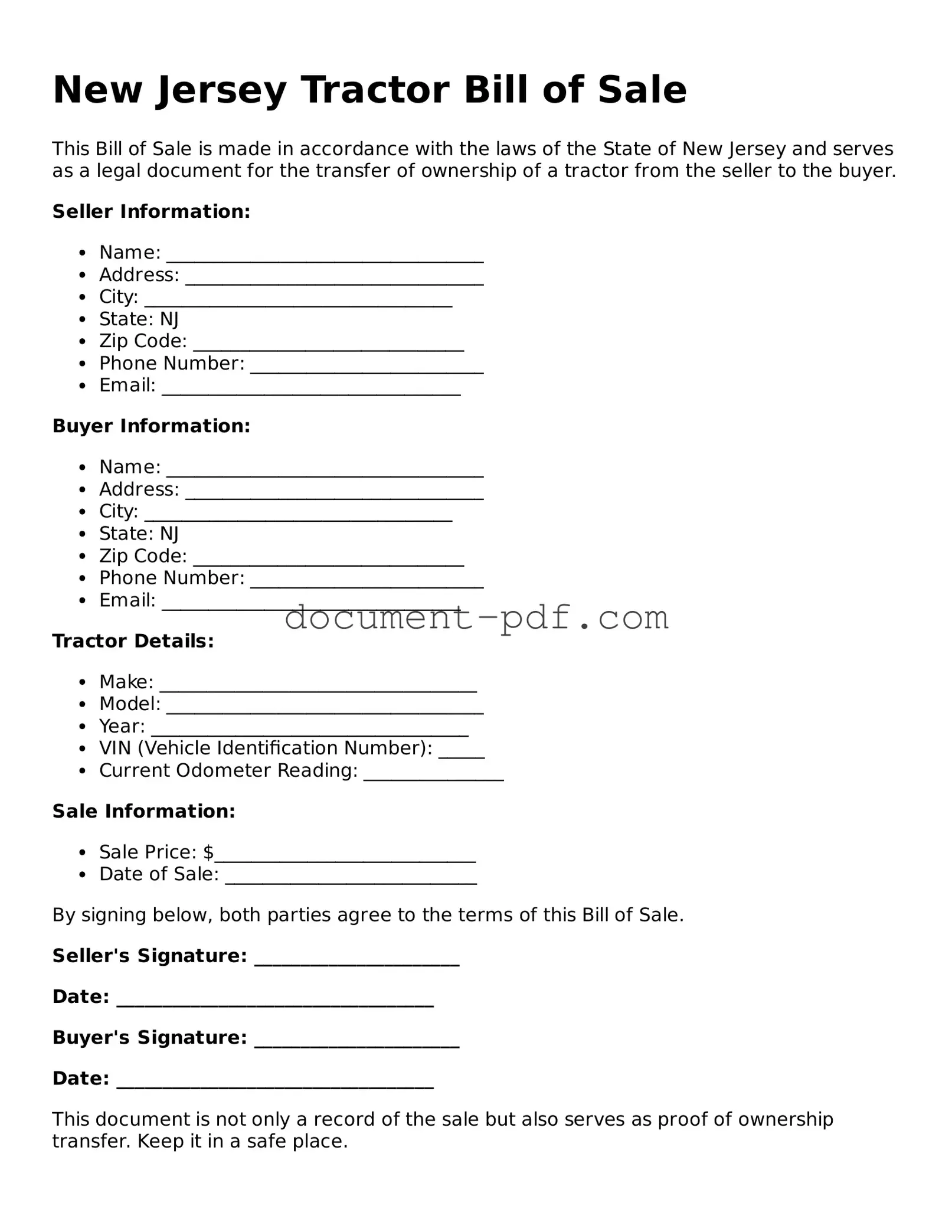Attorney-Verified New Jersey Tractor Bill of Sale Template
The New Jersey Tractor Bill of Sale form is a legal document that records the sale of a tractor between a buyer and a seller. This form serves as proof of ownership transfer and includes essential details such as the tractor's make, model, and identification number. Completing this form is crucial for ensuring a smooth transaction and protecting both parties' interests.
Ready to fill out the form? Click the button below to get started!
Access Tractor Bill of Sale Editor Here

Attorney-Verified New Jersey Tractor Bill of Sale Template
Access Tractor Bill of Sale Editor Here
Finish the form without slowing down
Edit your Tractor Bill of Sale online and download the finished file.
Access Tractor Bill of Sale Editor Here
or
Click for PDF Form
